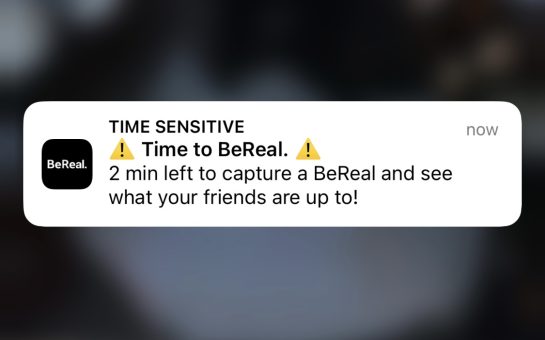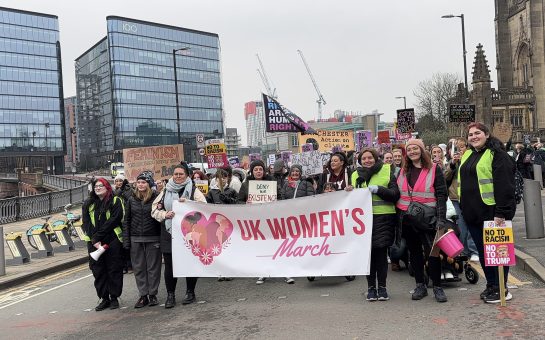Burlesque dancers have claimed Facebook is suffering from stage fright by banning saucy adverts – and have hit back with an e-petition that racked up more than 1,000 signatures in a day.
The e-petition is aiming to tackle stringent Facebook advertising rules that shackle burlesque adverts and pictures and keep them off the site and has already amassed 1,173 signatures.
Started by Manchester-based burlesque enthusiast and performer Glorian Gray, the 34-year-old told MM that she believes the social media giant has misunderstood the art.
“I just want to spread awareness because they are happy to leave up a beheading but the sight of a breast, cleavage or a female bottom that gets taken down straight away. To me, that seems a bit unfair,” said Glorian, who performs under her own real name rather than using a pseudonym.
“We’re talking about the picture of a bum. If Kim Kardashian was putting it up there it’s fine, but if it’s a burlesque performer putting it up there then it is inappropriate.
“My suspicion is that Facebook think that burlesque is something that it’s not as people tend to when they’re not in the know. I agree with the need to control content that children might see – but it’s not for children, it’s for grown-ups.”
The petition’s claims:
- Stopping entrepreneurs from advertising via social media could impact negatively on a number of independent businesses.
- To censor burlesque and related adult artistic expression is to try and control (mainly women’s) bodies, sexuality, creativity and activity.
- This ban suggests an element of moral judgement and slut-shaming, which has concerning implications for issues of gender equality.
Despite the huge swell of support for the campaign, Glorian is not too optimistic that Facebook will relax their stance.
“I don’t want to sound cynical, but I doubt Facebook is going to turn around and change their guidelines – they don’t have a good history of listening that well,” Glorian told MM.
“I would like to clarify what the issue is. Is it the word ‘burlesque’ itself or the imagery used? I would like them to clarify so we in the performing industry could at least understand a bit more about their advertising rules.”
And Glorian believes that the advertisements from the burlesque community should not fall foul of Facebook’s guidelines – especially as most users only see content targeted towards their own preferences.
“Everybody’s shocked by something, but it’s certainly not along the lines of advertising a pornographic show or even a lapdance club. It’s theatrical entertainment albeit with a saucy edge,” said Glorian, who combines academic research in the field of feminism and performance with her performances.
“It’s unlikely you would see a burlesque advert. I tend to see adverts based on what I like.
“We see that all the time, people getting quite concerned about whatever other people are up to whether it affects their life or not.”
Burlesque promoter Heidi Waddington, who uses the stage name Heidi Bang Tidy, has already seen one of her own images reported as inappropriate on Facebook this week.
And she claims that the community could be forced to desert the site if they do not change their ways.
“There is a very real chance we will stop using Facebook,” said Heidi. “Professional promoters who make a living from burlesque use the site for promoting shows. The first thing I do when I’m advertising is tick the box that says over-18 from the get go.”
Heidi, who runs the Hebden Bridge Burlesque Festival, encountered similar issues last year in a spat with the council in the Yorkshire town.
The organisers were offered a public apology and overturned initial objections to the festival after a 1,500 petition to lobby against the ban.
With the latest of her Manchester shows Green Eggs and Glam set for October 18 at Oxford Road’s Dancehouse Theatre, Heidi is eager to avoid problems that she believes are a product of wider sexism issues in society.
“People don’t know what to do when women are being sexually expressive. I have never seen a sex act on stage or a person being penetrated on stage at a burlesque show,” said Heidi, 39, who agrees with Glorian that the art is ‘not porn by its very definition’.
“It is a real venomous issue at the moment when a woman does something you do not want her to do and then that makes her a slut.
“It is a mainly female-led, female-managed and female-watched art form and I think that has a lot to do with this.”
Fellow Manchester performer Ginger La Rouge adds: “Burlesque is not pornography, but it is for adults. I don’t support a ban on paid advertising for burlesque nights, but I think it’s important that the advertising doesn’t reach anyone who’s under the legal age to attend.”
Posters on the site have condemned Facebook’s burlesque ban.
Alethea Lewis from Manchester posted: “I am fed up of people imposing their views on others!!!
“For some, burlesque may be vulgar, and rude, for me it has changed my life, why should I be punished because of the view of others?
“I don’t force them to watch or take part in burlesque so why should they try and force me to not do it?!?!”
Hyde-based Kim Mellor agreed that burlesque is smart and not smut and said: “I am a burlesque instructor, performer and compere and firmly believe burlesque is NOT sexual exploitation – it is an art form, greatly boosts confidence and self-esteem and is a fun way to keep fit.”
Further afield, Dawn Kemp from Cleethorpes believes that a flash of skin in some acts does not mean that burlesque should not be kept from computer screens and said: “This is pretty simple – no big words or arguments needed. Burlesque is not porn. It is an art form. It is empowering, witty & inclusive; it is not exploitative.
“There is partial nudity in some acts, but then there is on any public beach, and that is not porn. It has grown immensely in popularity, and many members of the public support it; many artists and performers make an honest living from it – why deny them the chance to promote it?”
Facebook’s guidelines say that ‘ads may not promote sale or use of adult products or services, including live shows’ and also states that: ‘Ads may not contain adult content, including nudity, depictions of people in explicit or suggestive positions, or activities that are overly suggestive or sexually provocative’.
Adverts may be removed at Facebook’s ‘sole discretion’ if the mega-site view them to be inappropriate.
You can view the petition here.
Image courtesy of Philippe Leroyer, with thanks.



